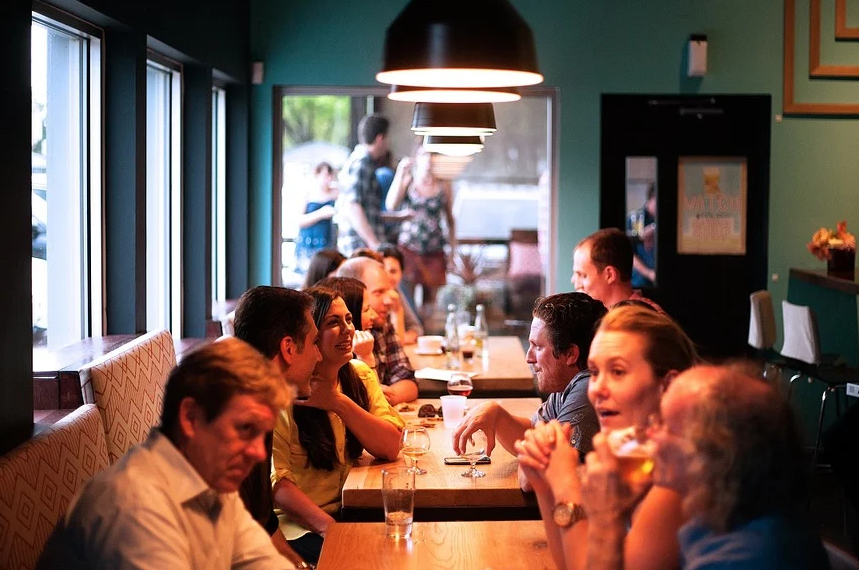Restaurant sustainability initiatives lose ground during COVID-19

Experts from Lang's School of Hospitality, Food and Tourism Management discuss how COVID-19 has impacted the hospitality industry's sustainability initiatives.
Across Canada, restaurant sustainability initiatives are taking one step forward and two steps back as full-service restaurants struggle to weather the most daunting winter season in recent memory.
Before the onset of the COVID-19 pandemic in March 2020, restaurant initiatives centred around environmental and social sustainability were on the rise. “Goals like addressing unsustainable wages for frontline workers and reducing single-use plastics were high priorities for the foodservice sector,” affirms Dr. Simon Somogyi, the Arrell Chair in the Business of Food at the School of Hospitality, Food and Tourism Management (HFTM) at Lang. “When COVID-19 hit, restaurants had to radically change their business models to survive.”
Bruce McAdams, an associate professor HFTM, remembers the success stories shared at an event hosted only a year ago by the University of Guelph Sustainable Restaurant Project, which he has directed for more than a decade. McAdams notes;
“There was real momentum around the business case for sustainability, a growing belief that being environmentally sustainable could help you become more profitable.”
Even during the first wave of the pandemic, quick-service giants like McDonald’s and A&W continued to drive profits through takeout and meal delivery apps. “If anything, people have craved comfort food more often during the pandemic,” says Somogyi. This year, major quick-service brands have advanced sustainability initiatives like developing more plant-based meal options and using more biodegradable materials.
Full-service restaurants, on the other hand, have not enjoyed the same good fortune. Forced to close their doors for indefinite stretches of time, they have paused their sustainability efforts until they regain their footing. “The simple fact is that social and environmental sustainability sit on the shoulders of economic sustainability,” recognizes Somogyi.
Over the summer, Somogyi and McAdams led a research team in conducting a study featuring three full-service foodservice providers located in British Columbia, Ontario, and Manitoba, respectively. Prior to the pandemic, all three maintained robust sustainability initiatives. In two dozen interviews over eight weeks, the research team documented the steps taken by the three food service providers to manage the crisis.
One of the study participants, a university food service provider, transitioned from using plates and chinaware to using disposable items to protect staff members from handling dirty plates. They also eliminated their student-driven reusable coffee cup program because of safety concerns. “These are just a few examples of going backwards,” says McAdams. Two of the three companies his team studied did not prepare food with disposable gloves prior to the pandemic, so adding gloves and face masks to the mix created a heightened level of waste.
For Emily Robinson, a graduate research assistant in food system sustainability at Lang, witnessing the return to a throwaway culture was discouraging, but not surprising given the dire financial straits in which many full-service restaurants have found themselves this year. “What was more unexpected to see was how much these business owners were winging it,” she shares. “No one seemed to know what to do in a situation like this.” Constantly changing regulations and patchwork government assistance programs made the financial landscape even rockier for full-service providers, Robinson and the rest of the team concluded.
The COVID-19 pandemic did produce one positive sustainability-related outcome, albeit unintentionally. “When full-service restaurants first shut down, they got caught with a lot of extra food,” says McAdams. “Now they maintain a smaller perishable inventory in case of another shutdown. They have also shortened their menus out of financial necessity, which cuts down on food waste.”

Overall, though, the financial impact of COVID-19 on full-service food providers is “worse on business owners and food service workers than most people think and understand,” expresses McAdams. “The industry will take years to climb out of this hole.” From his perspective, the severity of the pandemic has shone a light on the cracks in the food production system, from pay inequity to massive food waste. “The restaurant industry won’t succeed by returning to the status quo after COVID-19,” says McAdams. “It’s time to forward in a new, more sustainable direction.”
Dr. Simon Somogyi is the Arrell Chair in the Business of Food and an associate professor in Lang's School of Hospitality, Food and Tourism Management.
He conducts extensive research on agri-food value chain analysis & management and food consumer behaviour.
Bruce McAdams is an associate professor in Lang's School of Hospitality, Food and Tourism Management.
He is a sought after expert on issues related to sustainability within the hospitality and foodservice industry.
Emily Robinson is a graduate student (MSc Hospitality and Tourism Management) within the Lang School.
Subscribe to the Lang School's Business Impact Newsletter
Ideas, insights, research and thought leadership from the Lang School delivered right to your inbox.
Subscribe